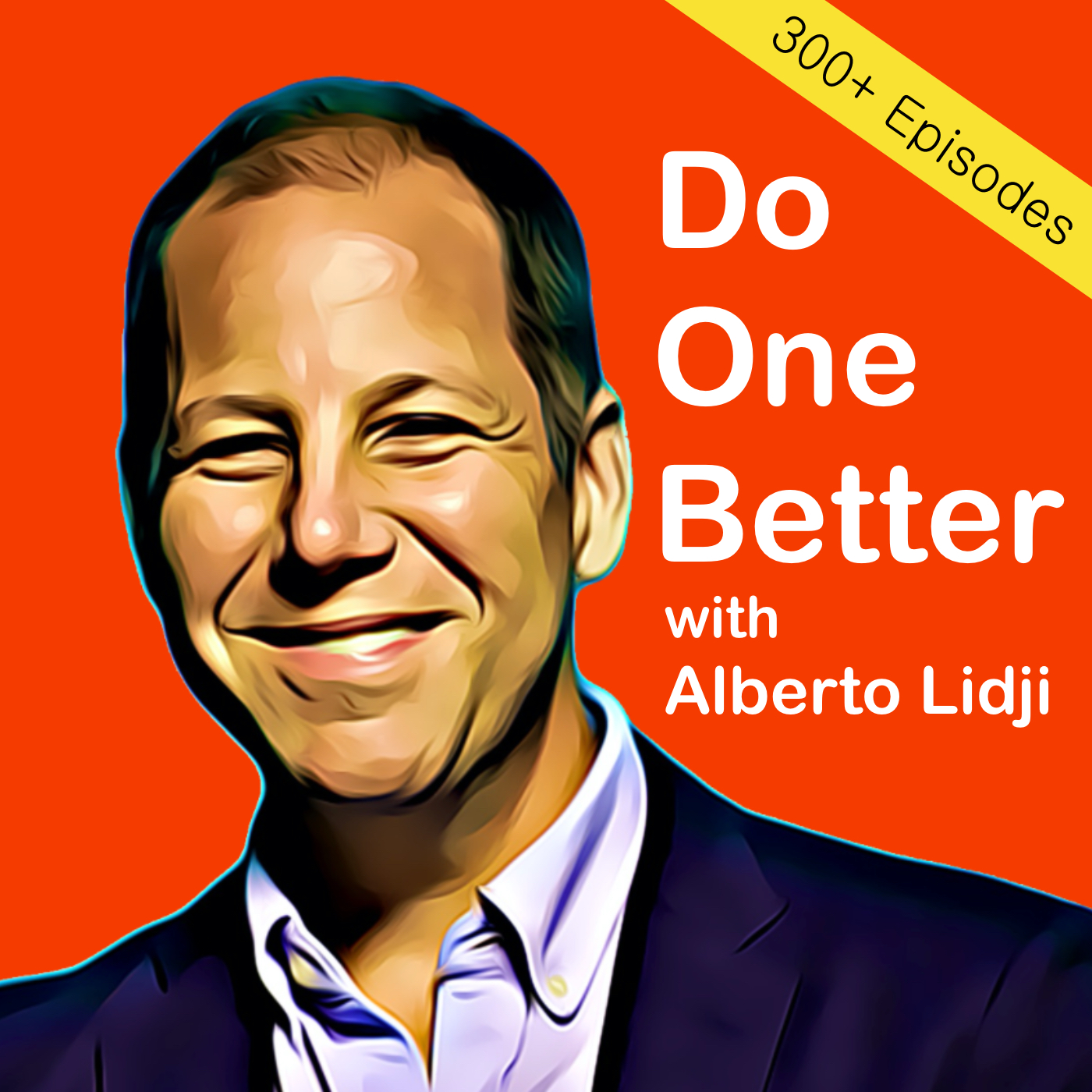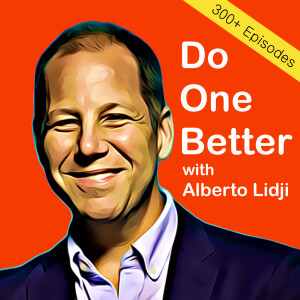

Listen to 300+ interviews on philanthropy, sustainability and social entrepreneurship. Guests include Paul Polman, David Lynch, Siya Kolisi, Cherie Blair, Chiwetel Ejiofor, Bob Moritz, David Miliband and Julia Gillard. Hosted by Alberto Lidji, Visiting Professor at Strathclyde Business School and ex-Global CEO of the Novak Djokovic Foundation. Visit Lidji.org for more information.
Episodes

Monday May 25, 2020
Monday May 25, 2020
Sanj starts off by providing an overview of ShelterBox’s origins; from a small outfit conceived 20 years ago in Cornwall, UK, to a global NGO providing disaster relief on the ground and via remote technical assistance.
It has only been a few days since super cyclone Amphan made landfall in Bangladesh and eastern India, and the latest estimates are that 10 million people have been impacted and 500,000 have lost their homes; this is on top of already being in an incredibly precarious situation as they grapple with COVID-19 in extremely densely populated areas where coronavirus is present.
It’s worth noting that a Rohingya refugee camp in Bangladesh has 40,000 people per square kilometre, whereas Wuhan, China, where the novel coronavirus (SARS-CoV-2) started has 6,000 people per square kilometre.
Sanj remarks that when the cyclone hits people are losing their homes and then moving into even more crowded settings for shelter, which then adds to the risk of coronavirus transmission. Therefore, ShelterBox needs to act quickly to provide family shelter; they’ve also got to provide hygiene materials to help people keep their hands clean.
This is a disaster on top of a disaster. This super cyclone is a natural disaster which is an acute emergency; you also have the coronavirus which is becoming a chronic emergency; and you also have the much wider development disparity with people living in extreme poverty. When you live in extreme poverty, you have less resilience and little ability to support your family. You don’t have a government that can provide you with a furloughing scheme and pay your wages, or that can bail out businesses, or provide healthcare.
Sanj recalls a conversation he had with someone in Monrovia, Liberia, in reference to the earlier Ebola outbreak. The man noted that Ebola doesn’t scare him since he’s already exposed to many risks that are alien to most Westerners. For him, dengue fever can kill him, malaria can kill him; he can’t afford healthcare, if he doesn’t work he’ll die. And so, for much of the world there is a lack of safety nets – the extreme poverty faced by millions is already life-threatening, on top of the acute and chronic emergencies.
Interestingly for a global disaster relief NGO, ShelterBox’s headquarters is in Cornwall, UK. They have approximately 110 staff in Cornwall and 20 staff in London. Sanj describes ShelterBox as both a community and an organisation. It relies to a great degree on volunteer support, from Rotary Club members to individual ambassadors.
ShelterBox has created response teams that go out into the frontlines when needed – made up both of professional humanitarians as well as volunteers. They have over 200 volunteers who are response team members in addition to their professional staff.
They run training programmes for volunteers that include a wide array of information, from how to run distribution to doing needs assessments. Training makes a big difference. They assess people for their qualities, for their appetite for learning and for their raw skills; but not necessarily their previous experience. They look for the potential in people.
ShelterBox works closely with the public and has a strong following of supporters. They’re working on developing more of an international base and now also have opened an office with a team full time in the Philippines and are looking at other countries, too. They take pride in partnering with local organisations on the ground – sometimes in very difficult circumstances in Syria, in Cameroon, in Somalia – and sticking with them, investing in their capacity and ultimately handing over responses to them.
Innovation is important. They have a ‘Horizons Team’ whose job is to spot new products for distribution and getting on top of the tech wave – thinking about what the world is going to look like in 10 or 20 years, what’s climate change going to do, what’s the scenario for that disaster they haven’t predicted. They’re also looking at new ways of working, such as remote technical assistance, which they’re currently doing in Paraguay with local partners.
Sanj sheds light on his professional trajectory. He was a Captain in the British Army and did two tours in Iraq, then joined the IRC (the International Rescue Committee) where he worked for close to a decade. He joined the Army in a pre-9/11 world. It was exciting and it was different, and he enjoyed the comradery, but through two tours in Iraq he did become disenchanted with what militaries do and can achieve versus what are the real human needs. So, he left with some good memories and some useful lessons. He then did a master’s degree and then went to the IRC – an organisation that taught him much about what it means to be a humanitarian and that’s where he got his grounding.
Today, Sanj notes that collaboration is improving between international NGOs and even with the UN, but there’s still a long way to go. Questions need to be asked around why do we have various NGOs doing the same type of work in the same country; why not have a single NGO doing each type of work and start to consolidate? There’s a long way to go but Sanj is very encouraged by the direction of travel.
Sanj posits a pragmatic idea to improve how the global community tackles some of the more intractable development problems. He doesn’t believe we can look to a deadlocked UN Security Council to resolve some of the conflicts and global issues we face – to get the Paris Climate Accords up and going for instance. Rather, he feels we need to look at more regionally led solutions and alliances. For instance, he points to ECOWAS (the Economic Community of West African States) one such example that can help where global frameworks struggle. Likewise, he refers to conflict resolution in places such as the Sudan and South Sudan, where east African states have been very involved. So, he believes that investment and support by Western countries in those types of mechanisms is a very pragmatic way to solve problems region by region.
Sanj’s key takeaway for listeners: As a senior (or aspiring) leader there is a fine balance to strike between having sufficient humility and having too much deference to what people think. It is important to keep the humility while having a lodestar that guides where we need to go without being afraid to bring people along for that journey. Try to take time to get feedback from those around you to help you strike that right balance – this will serve you well.
Visit Lidji.org for guest bios, episode notes and useful links. Please subscribe and share -- thank you!
No comments yet. Be the first to say something!